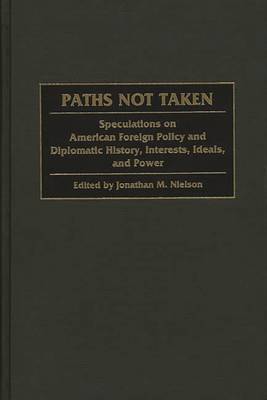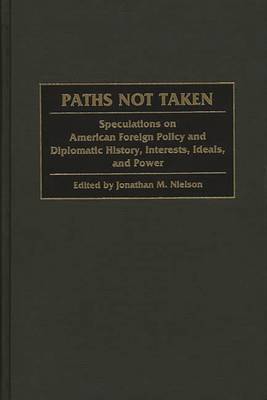
- Retrait gratuit dans votre magasin Club
- 7.000.000 titres dans notre catalogue
- Payer en toute sécurité
- Toujours un magasin près de chez vous
- Retrait gratuit dans votre magasin Club
- 7.000.000 titres dans notre catalogue
- Payer en toute sécurité
- Toujours un magasin près de chez vous
Paths Not Taken
Speculations on American Foreign Policy and Diplomatic History, Interests, Ideals, and Power
Description
In America's foreign affairs there has been a delicate balance between often conflicting imperatives of interests, ideals, and power. How these imperatives have intersected to shape the constellation of American foreign policy decisions throughout the nation's history and, indeed, how they have served to advance or subvert attainment of America's regional, hemispheric and global ambitions, is the subject of this study. This collection of essays explores seminal decisions in American foreign policy and diplomatic history, from the early National period to the Vietnam War, each of which proved to be a turning point, and then asks readers to consider alternative futures based upon different courses of action. Nielson underscores how history could, and perhaps should, have been different.
U.S. foreign policy has in large measure been contingent upon decisions made by individuals in positions of power. Their personalities, characters, and assumptions about duty and America's role in the world have uniquely shaped policy choices and, thus, the course of foreign affairs, for better or worse. This book hopes to show that history is ever fluid, unpredictable, and problematic. It will complement traditional texts as a what if counterpoint which will stimulate interest in and speculation about leadership roles, national interest, and decision making in foreign policy.Spécifications
Parties prenantes
- Editeur:
Contenu
- Nombre de pages :
- 240
- Langue:
- Anglais
- Collection :
Caractéristiques
- EAN:
- 9780275967697
- Date de parution :
- 28-02-00
- Format:
- Livre relié
- Format numérique:
- Genaaid
- Dimensions :
- 157 mm x 246 mm
- Poids :
- 557 g






